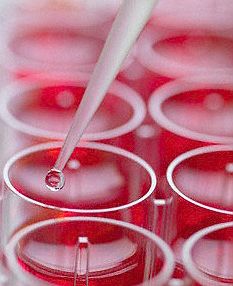Natural Killer Cell Deficiency Investigated by Trinity Medical Scientists
Posted on: 13 March 2012
Medical scientists at Trinity College Dublin in conjunction with researchers in Paris have investigated the consequence of natural killer cell deficiency in six related patients and identified a new genetic disorder which is responsible for this immune defect. The findings were recently published in the Journal of Clinical Investigation.
Natural killer cells are members of the lymphocyte family of circulating cells and are considered to play a key role in the immune system.
The affected individuals initially presented with marked growth retardation and recurrent infections. All were found to have a defect in a gene coding for a molecule called MCM4, which in conjunction with a series of similar molecules plays a key role in DNA replication. Although the function of the gene is seriously compromised, a level of MCM4 function is retained, and thereby allows the survival of the affected patient. Subsequently, patients developed failure of their adrenal glands and required hormone replacement. In some patients, chronic lung inflammation developed and in one patient a virus-related lymphoma occurred. Detailed further investigations helped explain the heterogeneous effects of the MCM4 mutation including the failure of natural killer cells to mature normally. It was also demonstrated that by inserting a fully functional MCM4 gene into cell lines, normal function was re-established. Although several of the clinical manifestations in these patients may relate directly to natural killer cell dysfunction, it is probable that others, including the adrenal failure, are a direct result of the MCM4 defect in individual tissues.
Commenting on the significance of the findings, Trinity lead researcher, Fellow Emeritus, Professor Con Feighery said: “The identification of unique genetic defects, as described here, helps give valuable insights to the function and development of the immune system as well as other biological systems and offer the potential for specific therapy for patients by replacing the defective gene.”

